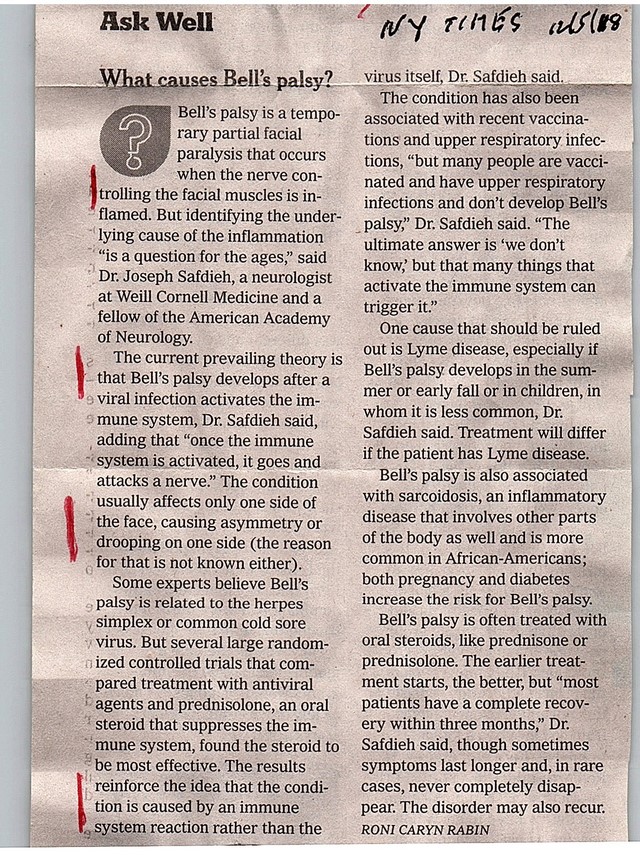Article from the Time 12/5/1017

What causes Bell's Palsy?
From NY Times 12/5/2017
Bell's palsy is a temporary partial facial paralysis that occurs when the nerve controlling the facial muscles is inflamed. But identifying the underlying cause of the inflammation "is a question for the ages," said Dr. Joseph Safdieh, a neurologist at Weill Cornell Medicine and a fellow of the American Academy of Neurology.
The current prevailing theory is that Bell's palsy develops after a viral infection activates the immune system, Dr. Safdieh said, adding that "once the immune system is activated, it goes and attacks a nerve." The condition usually affects only one side of the face, causing asymmetry or drooping on one side (the reason for that is not known either).
Some experts believe Bell's palsy is related to the herpes simplex or common cold sore virus. But several large randomized controlled trials that compared treatment with antiviral agents and prednisolone, an oral steroid that suppresses the immune system, found the steroid to be most effective. The results reinforce the idea that the condition is caused by an immune system reaction rather than the virus itself, Dr. Safdieh said.
The condition has also been associated with recent vaccinations and upper respiratory infections, "but many people are vaccinated and have upper respiratory infections and don't develop Bell's palsy," Dr. Safdieh said. "The ultimate answer is 'we don't know,' but that many things that activate the immune system can trigger it."
One specific cause that should be ruled out is Lyme disease, especially if Bell's palsy develops in the summer or early fall or in children, in whom it is less common, Dr. Safdieh said. Treatment will differ if the patient has Lyme disease.
Bell's palsy is also associated with sarcoidosis, an inflammatory disease that involves other parts of the body as well and is more common in African-Americans; both pregnancy and diabetes increase the risk for Bell's palsy.
Bell's palsy is often treated with oral steroids, such as prednisone or prednisolone. The earlier treatment starts, the better, but "most patients have a complete recovery within three months," Dr. Safdieh said, though sometimes symptoms last longer and, in rare cases, never completely disappear. The disorder may also recur.
